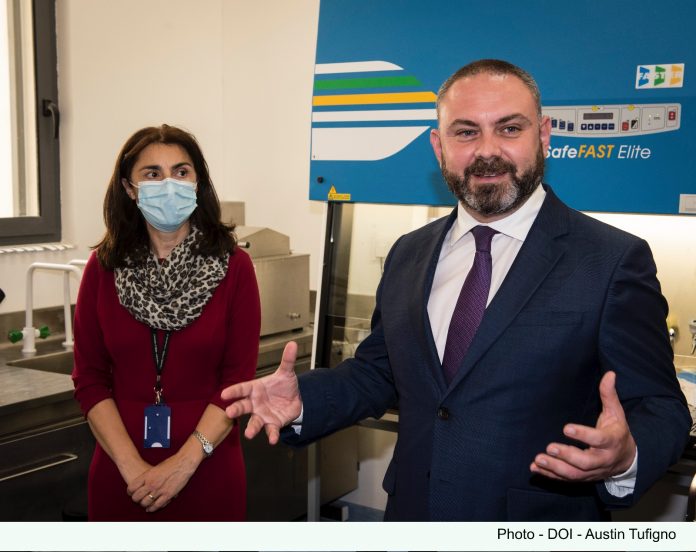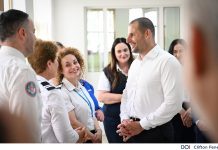*To this day, cancer remains a leading cause of death in developed countries
Agent NovoBio is a project funded by the Malta Council of Science and Technology (MCST) through the FUSION programme. This project brings together academics and the private industry to study the use of various bioactive agents extracted from Maltese endemic plants for use as potential novel treatments for leukaemia.
During a visit at the labs where the NovoBio research is taking place, Minister for Research, Innovation and the Coordination of the Post COVID-19 Strategy Owen Bonnici explained how Maltese academics from the Department of Physiology and Biochemistry (Centre of Molecular Medicine and Biobanking) and the Department of Anatomy within the Faculty of Medicine joined Għajn Rasul Co. Ltd as a business partner to study how extracts from Maltese endemic plants can help in the treatment of cancer.
Minister Bonnici praised the priceless efforts of the Maltese team working on this project that was initiated with the aim of developing the technology, knowledge, and expert skills required to scale up the extraction of bioactive agents that could have immense potential in the treatment of cancer.
“Thanks to this project, various extraction patterns of bioactive agents from native plants are being studied, while further tests are taking place to determine their safety in view of creating an innovative product for local and international commercialization. Further studies and tests about the activity of bioactive agents on different cancer lines such as breast and colon cancer are also in process to determine the efficiency of these agents on various types of cancer,” Minister Bonnici said.
On her part, project coordinator Dr Marion Zammit Mangion said that in line with the aims of the MCST FUSION programm, Agent NovoBio continues in its efforts to enhance the collaboration between the public and private sectors to stimulate further investments in biotechnology while increasing and disseminating scientific knowledge in this area by engaging with local and international scientific communities.
In all, €150,000 were provided to this project in terms of funding.










